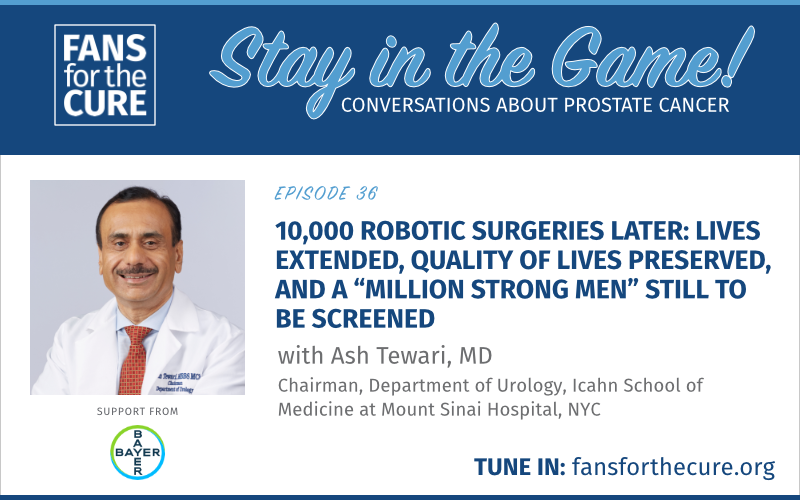An excellent article came to our attention on MedPage Today that logically addresses many of the highly nuanced medical and political issues around prostate cancer. And it all begins with Dr. Saurabh Jha asking the question: “The PSA Test: Did It Save Ben Stiller’s Life?”
For those of you who have not been following Stiller’s story in the news, the actor recently revealed that he was diagnosed in June 2014 with Gleason Grade 7 localized prostate cancer at the age of 48. The cancer was detected in a routine blood test that was part of Stiller’s annual physical, with the extra test added that year because his physician decided to establish a baseline PSA value. Stiller credits his internist with the early detection of his mid-range aggressive cancer, going on to say, “If he had waited, as the American Cancer Society recommends, until I was 50, I would not have known I had a growing tumor until two years after I got treated.”
But did the PSA test save Stiller’s life? Dr. Jha’s short answer is “We don’t know for certain.” His longer answer takes a deep dive into the specifics of “saving lives.” He asks whether it was possible, plausible, or probable that the life was saved, takes a look at “net lives saved” (e.g. those lives saved via screening vs. those lives lost to treatment complications for non-aggressive cancers. He finally asks: “What does “saving a life” in screening even mean?” His conclusion – “making a person live longer than they would have lived if they weren’t screened.” And as he points out to the Task Force and to those who focus on the low “net lives saved” statistics, the test saved a higher gross number of men.
The good news for the “net lives saved” stats is that urologists are getting better at sparing nerves, and use of the MRI has made it easier for doctors to distinguish cancers that are best left alone from those which should be treated aggressively. Dr. Jha also faults the United States Preventive Services Task Force (USPSTF) for not including urologists on its panel, which would make the Task Force more aware of the latest developments in clinical trials of prostate cancer treatments. He goes on to say, “The sledgehammer is getting more nuanced. Harms have reduced. Assessment of screening which incorporates the harms of the past, not the present, is like basing U.S. foreign policy today on the Cold War.”
In conclusion, Dr. Jha observes there is much uncertainty in the prostate cancer world – which isn’t a bad thing in his eyes.
Screening is an information problem – some benefit, some are harmed, but we don’t know who will benefit or who will be harmed. This has a name. It’s called “uncertainty.” I’m a huge advocate of public uncertainty. The more uncertain members of the public are, the less vice-like grip certitude has over them, the less religious and dogmatic they are, the better the world will be.
Read the full article online: http://www.medpagetoday.com/blogs/kevinmd/60870


